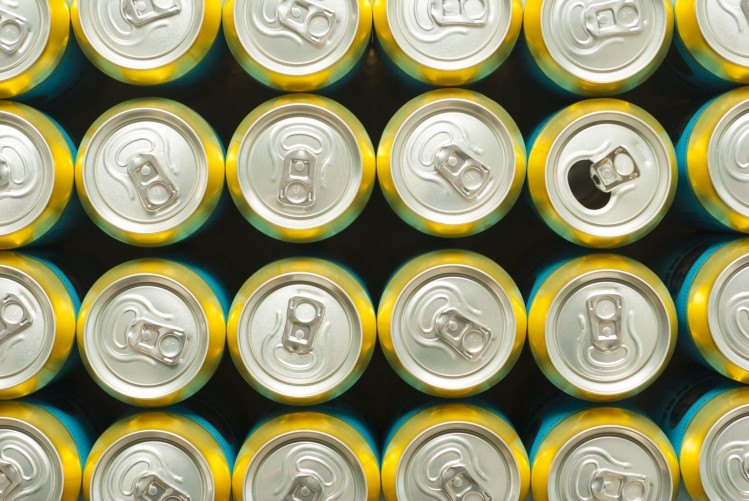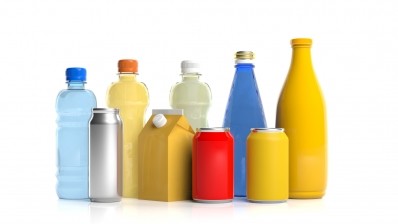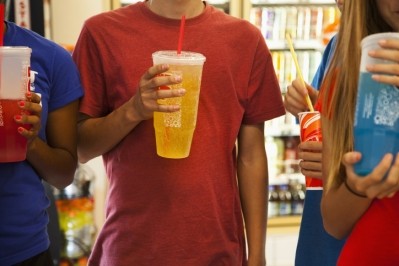Singapore bans advertising for high-sugar beverages

The Ministry of Health (MOH) will prohibit advertising of ‘the least healthy SSBs’ on mass media channels. It will also introduce mandatory front-of-pack nutrition labels on such beverages.
The new measures will cover most pre-packaged soft drinks: including carbonated beverages, malted drinks, juice drinks and juices, cultured milk and yogurt drinks, 3-in-1 or 2-in-1 instant beverages, and Asian drinks (RTD beverages which are typically brewed from herbs, fruits or flowers found in Asia, such as chrysanthemum tea, jasmine tea, bandung and barley drink).
The MOH is also continuing to explore an excise duty or ban on high sugar drinks. “We urge SSB manufacturers to consider reformulating their drinks to contain less sugar even as we further study these measures,” says the ministry.
On average, Singaporeans consume twelve teaspoons (around 60g) of sugar daily, with more than half of this coming from sugar-sweetened beverages.
Nutritional labelling
The measures follow a public consultation ran earlier this year, which had also explored other measures such as an excise duty on manufacturers and importers; or a ban on higher-sugar drinks.
The MOH found 84% of respondents supported mandatory front-of-pack labels; while 71% supported regulations on advertising to reduce their influence on high sugar beverage purchases.
The graded, colour-coded front-of-pack nutrient-summary label will be mandatory for ‘less healthy’ SSBs.
This will be determined by the nutritional quality of a drinks: with sugar being the main (but not only) factor. Beverages which do not fall into the ‘less healthy’ category will also be encouraged to use the label voluntarily.
“This label aims to help consumers identify less healthy SSBs and make more informed, healthier choices,” says the MOH. “It also encourages manufacturers to reformulate SSB products.”
Advertising ban
Beverages with the poorest front-of-pack label grade will also be subject to an advertising ban on all local mass media platforms: including broadcast, print, out-of-home and online.
“This aims to reduce the influence of such advertisements on consumer preferences,” says the MOH.
The MOH believes the measures will encourage the industry to reformulate.
"Together, these two measures [nutritional labelling and advertising restrictions] will provide consumers with nutrition information, particularly on sugar content, to make informed choices, and reduce influence from advertising, thus encouraging healthier choices and spurring industry reformulation."
Further measures?
The MOH describes the two measures as the 'start' of its efforts to tackle sugar intake, while it looks into more complex measures such as an excise tax or full out ban on high sugar drinks.
While 65% of respondents in the public consultation supported an excise duty to encourage reformulation, there were also concerns on increased costs for both manufacturers and consumers. And although 48% of respondents supported a ban on sales of higher sugar drinks, others believed this would deprive consumers of choice.
"The industry expressed particularly strong views against the duty and the ban, as they felt that these measures would be ineffective in reducing sugar intake and adversely affect businesses," says the MOH in its consultation results.
An excise duty on manufacturers and importers of sugar sweetened beverages could take one of two forms: either a flat duty with the same rate for all drinks over a threshold; or a tiered duty with a high rate for higher sugar beverages. The majority of consultation respondents (85%) favoured a tiered approach as it would provide greater incentive to reduce the sugar in high sugar drinks.
Another option being considered by the MOH is a nationwide ban on high sugar drinks. While some responded felt this would be the most effective way to curb consumption, others felt it was too extreme and would impact consumer choice. A compromise could be the ban of high sugar drinks in certain settings, such as hospitals or schools, instead of a nationwide ban.
The industry disagreed with a nationwide ban: particularly if it would introduce a threshold more stringent than its existing 12% sugar level pledge (Coca-Cola, F&N Foods, Malaysia Dairy Industries, Nestle, PepsiCo, Pokka and Yeo Hiap Seng all pledged in 2017 to reduce sugar in their products to 12% or less by 2020).





